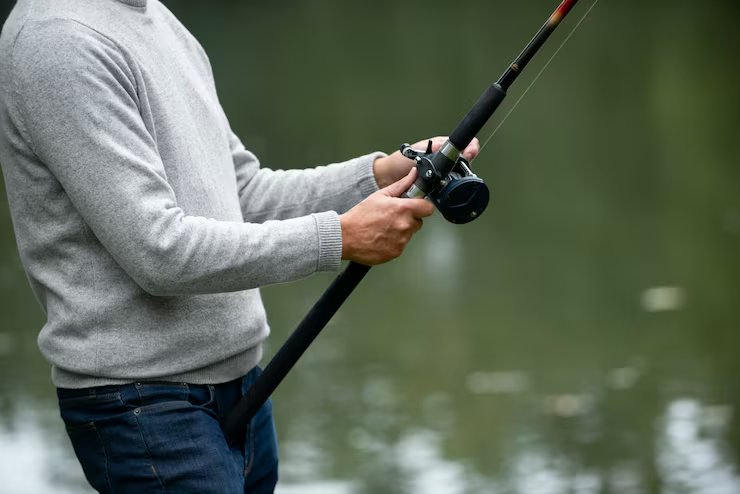Fishing is not only a recreational activity but also a vital source of livelihood for many. To regulate and conserve fish resources, most states require individuals to obtain a fishing license issued by the Fisheries Department. This licence helps in sustainable fishing practices, data collection, and protecting endangered species.
Whether you’re a hobbyist angler or a commercial fisher, this guide will walk you through the process of applying for a fishing license, the documents required, eligibility, and answers to frequently asked questions.
Types of Fishing Licenses:
Table of Contents
Fishing licenses may differ depending on the purpose and water body. Common categories include:
- Recreational (Sport) Fishing License
- Commercial Fishing License
- Inland Fishing License
- Marine Fishing License
- Special Permits (e.g., for endangered species or restricted zones)
Eligibility Criteria:
Eligibility varies by region, but typically:
- Must be a citizen or legal resident.
- For commercial licenses, applicants may need to be part of a registered fishing cooperative or firm.
- Age limits may apply (e.g., 18+ for commercial fishing).
- In some areas, foreign nationals may need special permits.
Documents Required:
Here’s a list of commonly required documents when applying for a fishing license:
For Recreational Fishing:
- Identity proof (Aadhar card, Passport, etc.)
- Passport-size photographs
- Proof of residence
- Fee payment receipt
For Commercial Fishing:
- Business registration certificate or fishing cooperative membership
- Boat registration documents
- Identity and address proof
- Recent photographs
- Environmental clearance (in some cases)
- Fishing gear inventory
- Tax registration (if applicable)
- Fee receipt
How to Apply for a Fishing License:
Here’s a general procedure:
Find the correct licensing authority:
Identify which government office issues fishing licenses in your area—this could be the Fisheries Department, District Fisheries Officer, or a designated licensing office. Some places also provide online portals.
Obtain the application form:
Get the licence application form—either in person at the office, via the department’s website, or through an online service/portal.
Fill in the required details:
Provide personal details (name, address, identity), details of fishing activity (type of fishing, gear, vessel if any), desired duration of licence, and the water bodies in which fish will be taken.
Attach necessary documents:
Typically includes identity proof, address proof, perhaps boat/vessel registration documents (if using a boat), photo (passport size), and any other documents required by local rules.
Pay licence fee:
Submit the fee; this could be for a daily, monthly, or yearly licence. Depending on local regulation, different fees apply for different water types or gear. E.g. in Sikkim: fees vary by water type and gear type.
Submit application:
Either physically at the office or online. Some authorities require in-person verification.
Receive a licence:
Once processed and approved, the licence is issued. It may be a paper permit or a digital/printable version.
Comply with conditions:
When fishing, you must follow all conditions: permitted gears, seasons, size limits, etc. You may be required to report catches or keep records.
Renewal/expiry:
Licences often have expiry dates; if you plan to continue fishing, renew in advance. Some jurisdictions have set renewal windows.
Validity and Renewal:
- Validity: Most licences are valid for 1 year from the date of issue.
- Renewal: Must be renewed before expiry. Late renewal may attract a penalty.
- The renewal process is similar to the application, but often faster.
Penalties for Fishing Without a Licence:
Fishing without a valid licence may result in:
- Fines
- Seizure of fishing gear or a boat
- Legal action, especially for commercial offenders
- Ban from future fishing activities
Conclusion:
Fishing licenses issued by Fisheries Departments are essential tools for ensuring that fishing is carried out lawfully, sustainably, and with consideration for the environment and local communities. While obtaining a licence involves fulfilling certain requirements and paying fees, the benefits—sustainable fish stocks, habitat protection, legal clarity, and fair access—are significant. Licences help balance human fishing activity with the needs of ecosystems and future generations.
FAQs:
Q. Is a fishing license mandatory for all types of fishing?
A. Yes. Most states/countries mandate a fishing license for both recreational and commercial purposes. However, children under a certain age or tribal communities may be exempt in specific areas.
Q. Can I apply for a licence online?
A. Yes, many Fisheries Departments offer online portals. If not, you must apply at the local Fisheries Office.
Q. How long does it take to get the licence?
A. Usually between 7 to 30 days, depending on the type of licence and completeness of your application.
Q. Is the fishing license valid in all states?
A. No. Fishing licenses are typically state-specific or region-specific. For fishing in another state, you may need to apply separately.
Q. Can foreigners apply for a fishing license?
A. In most cases, yes – especially for recreational fishing. However, they may need additional permits and must comply with local rules.
Q. What if I lose my fishing license?
A. You can request a duplicate license by submitting a written application, along with a valid ID and a small fee.
Q. Do I need a separate licence for a fishing boat?
A. Yes. Boat registration and safety clearance are separate and required for commercial fishing.
Q. Are there any fishing restrictions even with a licence?
A. Yes. Restrictions may include:
- No fishing during closed seasons
- Catch limits
- Protected species
- Restricted zones
Q. Can I transfer my fishing license to someone else?
A. Typically, no. Fishing licenses are non-transferable unless specified otherwise (e.g., in cooperative societies).
